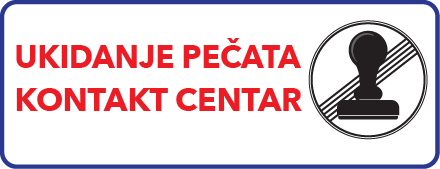Assembly of the AP Vojvodina
About the Assembly
The Assembly of the Autonomous Province of Vojvodina is the representative body of citizens which enacts regulations for enforcement of laws and and other regulations and by-laws of the Republic of Serbia, the enforcement of which is delegated to the Assembly, as well as decisions and other by-laws within their competence.
The Assembly of the Autonomous Province of Vojvodina has 120 Deputies elected in direct elections, by means of balloting, according to proportional representation system, for a four-year term of office.
The supreme legal document of the Autonomous Province of Vojvodina is the Statute. It is enacted by the Assembly upon the previous consent given by the National Parliament of the Republic of Serbia.
According to the Constitution of the Republic of Serbia and the Law on Establishing the Competences of the Autonomous Province of Vojvodina, the Statute determines the competences of the Autonomous Province, election, organisation and activities of its bodies and other issues of interest to the Autonomous Province.
In the Autonomous Province of Vojvodina, all citizens are equal in their rights and duties, regardless of their race, gender, origin, language, national affiliation, religion, political or other belief, education , social background, private resources and their personal status.
Apart from Serbian language (Cyrillic and Latin script), other languages, such as Hungarian, Slovak, Romanian, Ruthenian and Croatian are officially used in the work of the Assembly.
As far as international cooperation is concerned, we can emphasise the membership in the Assembly of European Regions (AER), among other activities.
The seat of the Assembly is in Novi Sad, Vladike Platona bb street, in the building of Banovina Palace, which is designated as cultural monument of utmost importance.
ORGANISATION OF WORK
Organisation and method of work of the Assembly of the Autonomus Province of Vojvodina, as well as fulfilment of Deputies' rights and duties are regulated by the Rules of Procedure of the Assembly of the Autonomous Province of Vojvodina.
The Assembly has the President and maximum of six Vice-Presidents.
For the purpose of deliberation and discussion of issues falling within the competence of the Assembly, proposal of documents, analysing the state in certain sectors and performing other activities, committees are formed as standing working bodies.
The Assembly has its Secretary General who helps the President and Vice-Presidents of the Assembly in preparation and holding sessions and who is also in charge of the Assembly Service.
* * *
The executive organ of the Province is the Executive Council of the Autonomous Province of Vojvodina which is accountable to the Assembly of the Autonomous Province of Vojvodina. The rights and duties of the Executive Council are laid down by the Constitution of the Republic of Serbia and by the Statute of the Autonomous Province as its supreme legal act.
The Executive Council consists of the following secretariats:
Provincial Secretariat for Information
Provincial Secretariat for Local Self-Government and Inter-Municipal Cooperation
Provincial Secretariat for Regulation, Administration and National Minorities
Provincial Secretariat for Finances
Provincial Secretariat for Economy
Provincial Secretariat for Architecture and Urban Planning
Provincial Secretariat for Education
Provincial Secretariat for Culture
Provincial Secretariat for Health Care
Provincial Secretariat for Energy and Mineral Resources
Provincial Secretariat for Sports and Youth
Provincial Secretariat for Science and Technological Development
Provincial Secretariat for Labour, Employment and Gender Equality
Provincial Secretariat for Regional and International Cooperation
Provincial Secretariat for Social Policy and Demography
Provincial Secretariat for Agriculture, Water Management and Forestry
Provincial Secretariat for Environment Protection and Sustainable Development
Provincial Secretariat for Culture
Provincial Secretariat for Culture is an organ of the Executive Council whose rights and duties are laid down by the enactments with the main function of cultural development of AP Vojvodina. The Provincial Secretary for Culture is Milorad Djuric.
Provincial Secretariat for Culture consists of three main sectors:
- Cultural Sector
- Legal, General Affairs and IT Sector
- Financial Sector
Cultural Sector
Cultural Sector includes the entire creative work of Vojvodina which has very long and rich tradition. It is distinguished by its multiculturalism which has emerged from the numerous centuries of coexistence of various nationalities on the Vojvodina territory.
Cultural Sector's activities:
- keeping informed of the work done by institutions, associations, societies and other subjects engaged in preservation of cultural heritage and development of cultural creativity.
- encouraging the development of a new cultural policy model which is to contribute to active inclusion of our culture into wider regional, European as well as worldwide cultural integration.
-providing support for projects based on multidisciplinary programs consistent with challenges of the time. These types of projects are highly significant for enabling democratic and tolerant coexistence of a multicultural community, development of analytical ability and strengthening of ethics and interrelation among people by supporting growth of high culture and arts as well as cultural amateurism.
- engaging in networking of cultural institutions in order to provide more information, cooperation and program exchange.
- providing support for alternative cultural projects, new technologies, etc.
Cultural Sector keeps the informations about:
Matica Srpska's work, national heritage preservation, publishing, work of libraries, theatres, film creations, art creations, music creations, amateur arts, cultural creations of minorities and work of all cultural institutions.
















